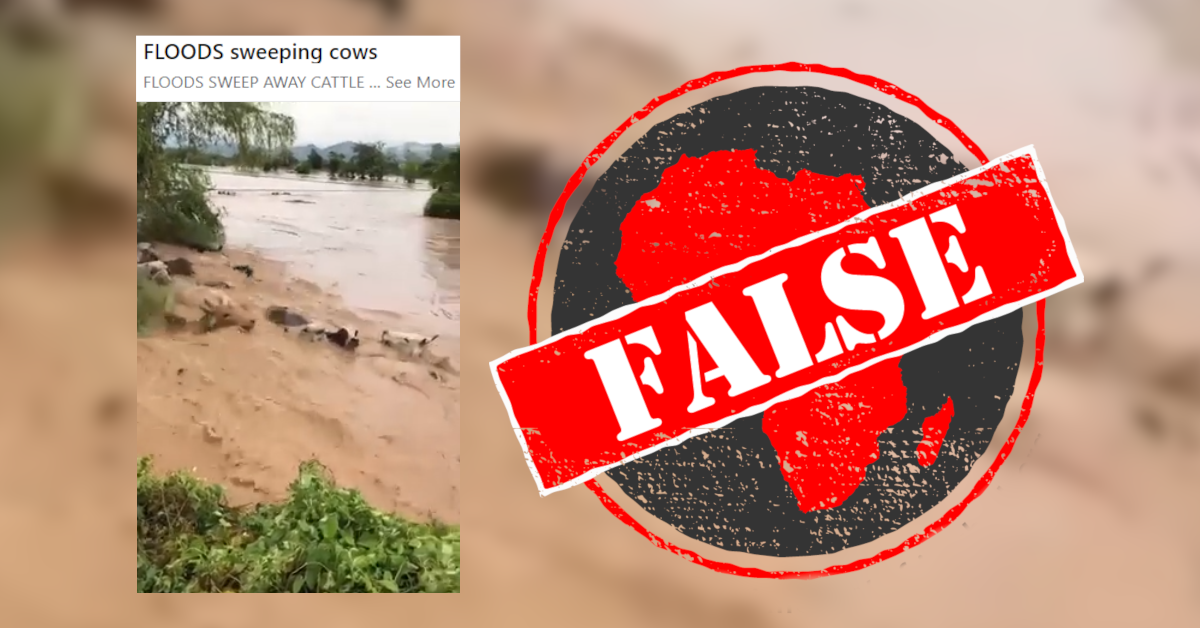A video of about 20 cattle helplessly carried under a bridge by rapidly flowing muddy river water was posted on Facebook in Kenya on 14 August 2020.
“FLOODS SWEEP AWAY CATTLE,” the description reads. “As parts of the country continue to witness heavy rainfall, some West Pokot county residents are already counting losses following heavy downpours. Tens of their cattle have swept away by the raging waters.”
In 2019 West Pokot, a county on Kenya’s western border with Uganda, was hit by severe flooding that destroyed property and left scores dead. Soon after, Africa Check debunked a claim about the floods.
Is this video more of the same? We checked.

We used the InVID verification tool to extract frames from the video for a Yandex reverse image search. On Yandex we found the same footage in a YouTube video uploaded on 29 July, with the title “Cows being swept away in flood water/ Severe weather coverage”.
The video is described as having been filmed in Nayarit, Mexico. A Google search for “Nayarit” and “livestock” led us to another version, published in Mexico’s La Jornada on 27 July.
The video doesn’t show more flooding in West Pokot. It was shot in Mexico. – Grace Gichuhi
“FLOODS SWEEP AWAY CATTLE,” the description reads. “As parts of the country continue to witness heavy rainfall, some West Pokot county residents are already counting losses following heavy downpours. Tens of their cattle have swept away by the raging waters.”
In 2019 West Pokot, a county on Kenya’s western border with Uganda, was hit by severe flooding that destroyed property and left scores dead. Soon after, Africa Check debunked a claim about the floods.
Is this video more of the same? We checked.

Video shot in Nayarit, Mexico
We used the InVID verification tool to extract frames from the video for a Yandex reverse image search. On Yandex we found the same footage in a YouTube video uploaded on 29 July, with the title “Cows being swept away in flood water/ Severe weather coverage”.
The video is described as having been filmed in Nayarit, Mexico. A Google search for “Nayarit” and “livestock” led us to another version, published in Mexico’s La Jornada on 27 July.
The video doesn’t show more flooding in West Pokot. It was shot in Mexico. – Grace Gichuhi
Republish our content for free
For publishers: what to do if your post is rated false
A fact-checker has rated your Facebook or Instagram post as “false”, “altered”, “partly false” or “missing context”. This could have serious consequences. What do you do?
Click on our guide for the steps you should follow.
Publishers guideAfrica Check teams up with Facebook
Africa Check is a partner in Meta's third-party fact-checking programme to help stop the spread of false information on social media.
The content we rate as “false” will be downgraded on Facebook and Instagram. This means fewer people will see it.
You can also help identify false information on Facebook. This guide explains how.



Add new comment